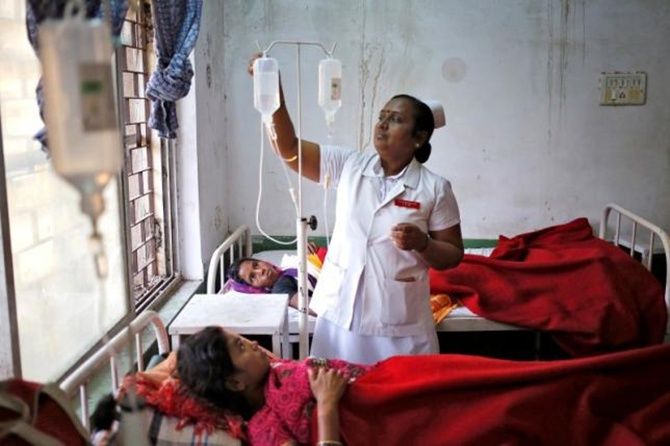A dialysis machine contributes only 6 per cent to the overall cost.
 Even as the government decided in the Budget to give tax exemptions on certain parts of dialysis equipment, it is unlikely to bring down the price of the dialysis procedure itself.
Even as the government decided in the Budget to give tax exemptions on certain parts of dialysis equipment, it is unlikely to bring down the price of the dialysis procedure itself.
“Dialysis costs depend on several factors - consumables (such as the dialyser), nephrologist fees, water and utilities, and staff overheads. The machine cost contributes only about 6 per cent to the overall cost of a session,” says a spokesperson from Medtronic, one of the world’s largest medical devices company.
However, such tax exemptions will help in reducing the cost of the dialysis equipment, which in turn enables medical practitioners to acquire the machines at lower cost and set up more dialysis centres in small cities and rural areas.
According to finance minister Arun Jaitley, there are about 220,000 new patients of end-stage renal (kidney) disease in India every year, resulting in an additional demand for 34 million dialysis sessions.
With approximately 4,950 dialysis centres in India, largely in the private sector and concentrated in major towns, the demand is only half met.
At present, one round of dialysis costs Rs 1,800-2,400 in India, depending on the kind of hospital it is.
“Currently, a majority component of this cost is not linked to the price of the dialysis equipment. So, patients will get the cost benefit only when the number of centres rise and the price fall due to competition,” says Rana Mehta, leader, healthcare at PwC India.
There are few dialysis centres in India because they are difficult to set up. Apart from the dialysis machine, there are operational constraints in running dialysis centres, which must have complex RO (reverse osmosis) facilities, dialysis beds and accessory equipment, trained technicians and nurses, supply of large quantities of water and availability of nephrologists.
Sensing the opportunity in India, Medtronic is planning to launch a portable dialysis system by the end of July, 2017, which can be transported easily to smaller towns and cities for dialysis sessions under the guidance of medical practitioners.
According to the company’s spokesperson, this machine is expected to reduce water consumption by close to 90 per cent as compared to traditional dialysis equipment.
Currently, the dialysis equipment market has key players like Fresenius, B Braun, Nipro, Baxter-Gambro in India. Fresenius - the German company that specialises in making dialysis equipment — is the market leader in India. According to some estimates, the market is valued at approximately $50 million at present.
Apart from tax exemptions on certain dialysis equipment, the finance minister has also announced a ‘National Dialysis Services Programme’ which would be rolled in a public private partnership (PPP) format.
"This will help out in the faster roll out of this programme. The Andhra Pradesh government has already implemented this programme with much success. As the number of patients needing dialysis are rising in states - and as rural areas do not have dialysis facilities - a similar nationwide PPP programme will help dealing with this issue," said Mehta.











